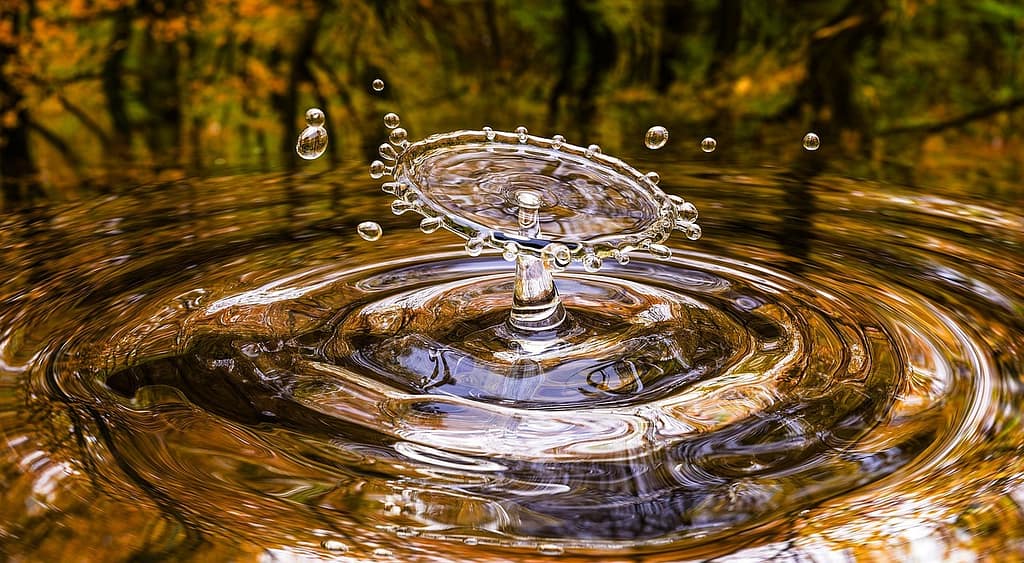For centuries, humans have sought out pure sources of water for refreshment and well-being. Spring water, a natural and pristine beverage, continues to be a popular choice for those seeking refreshing hydration and potential health benefits. This article explores the fascinating world of spring water, delving into its origins, composition, and the reasons why it might be the perfect choice for your daily hydration needs.
Introduction to Spring Water
The Origins of Spring Water
Spring water isn’t simply filtered tap water. It embarks on a remarkable journey deep beneath the Earth’s surface. Rainwater and melted snow filter through layers of rock and sand, undergoing a natural purification process. As this water percolates through the earth, it picks up minerals and electrolytes, adding to its unique flavor profile. Eventually, the water reaches an underground aquifer – a water-bearing layer of rock or sediment. When the pressure within the aquifer forces the water to the surface, a natural spring is formed, offering a source of pure and refreshing spring water.
The journey of spring water can take hundreds or even thousands of years. This extended filtration process through various geological layers is believed to contribute to the exceptional quality and taste of spring water.

Composition and Characteristics
Spring water, unlike tap water, is not chemically treated. It retains its natural mineral content, which can include calcium, magnesium, potassium, and sodium. The specific mineral profile of spring water varies depending on its geographic source. For example, spring water sourced from volcanic regions may be higher in silica, while springs located near limestone deposits may have a higher calcium content.
The presence of these minerals not only influences the taste of spring water, but may also contribute to its potential health benefits. Additionally, spring water typically has a neutral pH level, making it a refreshing and balanced beverage.
The Importance of Source and Quality
Spring water is only as good as its source. To ensure you’re reaping the benefits of pure spring water, it’s crucial to choose a reputable brand that adheres to strict bottling regulations. Look for certifications from independent bodies that verify the source and quality of the spring water.
While spring water is naturally filtered, some brands may employ minimal additional filtration processes to remove any unwanted particles or adjust the mineral content for taste. However, these processes should not alter the core characteristics of pure spring water.

Benefits of Spring Water
Hydration and Mineral Content
Water is essential for every bodily function, from regulating temperature to transporting nutrients. Proper hydration is crucial for maintaining overall health and well-being. Spring water, with its refreshing taste and naturally occurring minerals, can be an excellent choice to meet your daily hydration needs.
The electrolytes found in spring water, such as sodium, potassium, and magnesium, may play a role in maintaining proper fluid balance and muscle function, especially after exercise or physical activity [5].
Health Benefits and Natural Purity
Spring water, due to its natural filtration process and mineral content, is often touted for potential health benefits. While research is ongoing, some studies suggest that spring water may contribute to:
- Bone health: Calcium and magnesium, minerals often found in spring water, are essential for building and maintaining strong bones .
- Muscle function: Electrolytes like potassium and magnesium may play a role in muscle function and reducing cramps.
- Digestive health: Certain spring water sources may contain natural bicarbonates, which may aid digestion.
It’s important to note that these potential health benefits are not a substitute for a balanced diet and healthy lifestyle. However, choosing spring water for hydration can be a way to incorporate essential minerals into your daily routine.

Comparison with Other Types of Water
When it comes to hydration options, consumers have a variety of choices. Here’s a brief comparison of spring water with other popular options:
- Tap water: Municipal tap water undergoes rigorous treatment processes to ensure safety. However, it may contain trace amounts of chlorine and other disinfectants, which can alter the taste. Additionally, depending on your location, tap water may have lower mineral content compared to spring water.
- Distilled water: While distilled water is considered pure, the distillation process removes all minerals, leaving it with a flat taste. This lack of minerals may not be ideal for optimal hydration.
- Sparkling water: Carbonated water can be a refreshing alternative, but it’s often devoid of minerals and may contain added sugars or artificial flavors. Opting for natural sparkling spring water can provide the benefits of bubbles without compromising on purity.
Environmental Impact and Sustainability
While plastic waste is a growing concern, choosing spring water doesn’t necessarily have to be a detriment to the environment. Look for brands that use sustainable packaging practices, such as recycled plastic bottles or aluminum cans. Additionally, some spring water companies are implementing initiatives to reduce their carbon footprint and support environmental conservation efforts.

Conclusion
Spring water offers a unique and refreshing way to stay hydrated. Its natural filtration process, mineral content, and purity make it a popular choice for those seeking a healthy and flavorful beverage. While further research is needed to solidify all its potential health benefits, spring water can be a valuable addition to a balanced diet and active lifestyle.
When choosing spring water, consider the source and quality. Look for brands that adhere to strict bottling regulations and prioritize sustainability practices. With a little research, you can enjoy the benefits of spring water while minimizing your environmental impact.
In addition to the points above, here are some additional considerations:
- Taste: Spring water’s taste can vary depending on its mineral content and source. Experiment with different brands to find one you enjoy.
- Cost: Spring water can be more expensive than tap water, but the cost can vary depending on the brand and size.
- Convenience: Bottled spring water is readily available and convenient for on-the-go hydration.
Ultimately, the choice between spring water and other options is a personal one. By understanding the benefits and drawbacks, you can make an informed decision about the best way to meet your hydration needs.




